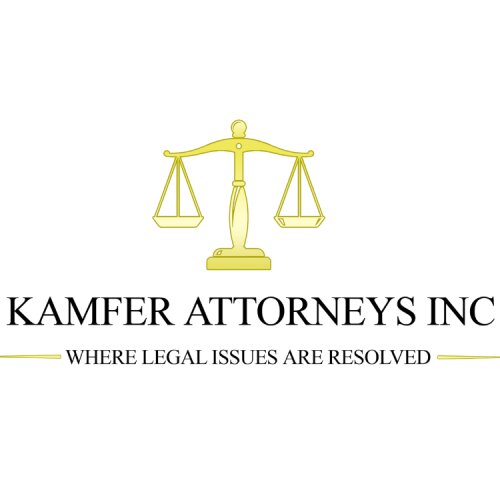Best Labor Law Lawyers in Pretoria
Share your needs with us, get contacted by law firms.
Free. Takes 2 min.
List of the best lawyers in Pretoria, South Africa
About Labor Law in Pretoria, South Africa
Labor Law in Pretoria, South Africa, is a crucial aspect of the legal landscape, focusing on the rights and responsibilities of both employers and employees. Governed by a variety of statutes such as the Basic Conditions of Employment Act, the Labor Relations Act, and the Employment Equity Act, Labor Law ensures fair practices within the workplace. In Pretoria, as in the rest of South Africa, these laws aim to address issues such as unfair dismissal, workplace discrimination, working conditions, and more, providing a structured framework to protect the interests of all parties involved in the employment relationship.
Why You May Need a Lawyer
There are several situations where you might need the expertise of a Labor Law lawyer in Pretoria:
- Unfair Dismissal: If you believe you have been terminated from your job without just cause or due process, a lawyer can help you understand your rights and pursue compensation.
- Workplace Discrimination: Experiencing discrimination based on race, gender, or other protected characteristics can warrant legal intervention to ensure equity and fair treatment.
- Contractual Issues: If there are discrepancies or breaches in your employment contract, legal advice can help protect your contractual rights.
- Workplace Harassment: In cases of harassment by coworkers or supervisors, a lawyer can help navigate the legal system to address the behavior.
- Retrenchment Process: If you're facing retrenchment, legal advice can help ensure the process is conducted fairly and you're adequately compensated.
Local Laws Overview
Pretoria, as part of the broader legal framework of South Africa, adheres to several key labor laws:
- Basic Conditions of Employment Act: Establishes minimum employment conditions like working hours, leave, and remuneration.
- Labor Relations Act: Focuses on labor practices, collective bargaining, and dispute settlement mechanisms.
- Employment Equity Act: Aims to eliminate workplace discrimination and promote equity and diversity.
- Occupational Health and Safety Act: Ensures that working environments are safe and healthy.
Frequently Asked Questions
What is unfair dismissal?
Unfair dismissal occurs when an employee is terminated without a fair reason or without following the proper procedure outlined by labor laws.
What are the basic rights of an employee under South African Labor Law?
Employees have the right to fair labor practices, equal pay for equal work, protection from discrimination, and safe working conditions, among others.
How can I report workplace discrimination in Pretoria?
You can report workplace discrimination to the Commission for Conciliation, Mediation and Arbitration (CCMA) or seek advice from a labor lawyer.
What should I do if I suspect I'm being unfairly dismissed?
First, document all relevant information, then consult with a labor lawyer for advice on possible actions you can take.
How can I ensure my employment contract is fair and legal?
Have a labor lawyer review your contract before signing to ensure that it meets legal standards and protects your interests.
What recourse do I have if I'm a victim of workplace harassment?
Document incidents of harassment, report them to the appropriate management, and seek legal counsel to explore further actions.
Is it legal to be retrenched without compensation?
No, retrenchment must follow legal procedures, and fair compensation should be provided based on tenure and other factors.
Can I negotiate terms in my employment contract?
Yes, you can negotiate terms such as salary, work hours, and job responsibilities before signing your employment contract.
What steps should a company take to comply with the Employment Equity Act?
Companies should conduct regular audits, eliminate discriminatory practices, and implement affirmative action measures.
When should I contact the CCMA?
Contact the CCMA for disputes related to unfair labor practices, dismissal issues, or any contravention of labor laws.
Additional Resources
If you require more information or assistance, consider reaching out to the following resources:
- Commission for Conciliation, Mediation and Arbitration (CCMA): Provides mechanisms for resolving labor disputes.
- Department of Employment and Labor: Offers guidelines and information on labor practices and rights.
- Legal Aid South Africa: Provides legal assistance to those who cannot afford it.
- South African Human Rights Commission: Addresses issues related to equality and discrimination in the workplace.
Next Steps
If you need legal assistance in labor law, consider the following steps:
- Document Your Issue: Keep detailed records of any incidents or contracts related to your labor issue.
- Consult a Lawyer: Reach out to a qualified labor law attorney in Pretoria to discuss your situation and explore potential solutions.
- Utilize Resources: Contact relevant bodies like the CCMA for assistance in mediation and arbitration if necessary.
- Know Your Rights: Familiarize yourself with your legal rights under labor laws to better advocate for yourself.
Lawzana helps you find the best lawyers and law firms in Pretoria through a curated and pre-screened list of qualified legal professionals. Our platform offers rankings and detailed profiles of attorneys and law firms, allowing you to compare based on practice areas, including Labor Law, experience, and client feedback.
Each profile includes a description of the firm's areas of practice, client reviews, team members and partners, year of establishment, spoken languages, office locations, contact information, social media presence, and any published articles or resources. Most firms on our platform speak English and are experienced in both local and international legal matters.
Get a quote from top-rated law firms in Pretoria, South Africa — quickly, securely, and without unnecessary hassle.
Disclaimer:
The information provided on this page is for general informational purposes only and does not constitute legal advice. While we strive to ensure the accuracy and relevance of the content, legal information may change over time, and interpretations of the law can vary. You should always consult with a qualified legal professional for advice specific to your situation.
We disclaim all liability for actions taken or not taken based on the content of this page. If you believe any information is incorrect or outdated, please contact us, and we will review and update it where appropriate.

















